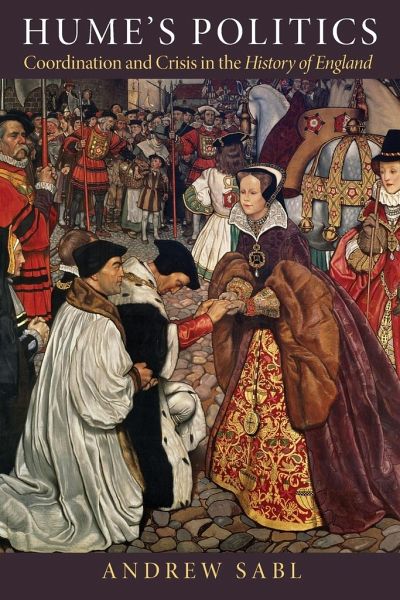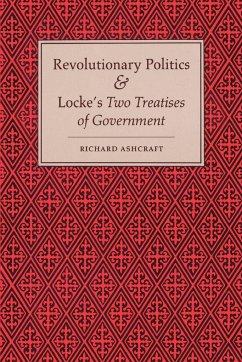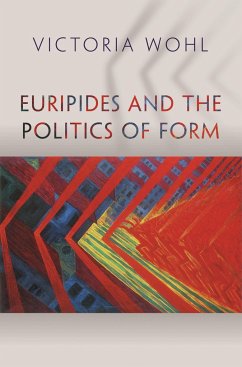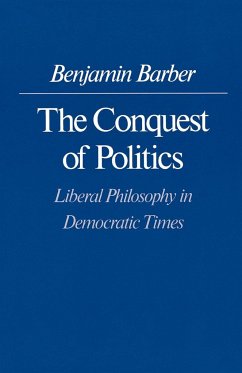
Hume's Politics
Coordination and Crisis in the History of England

PAYBACK Punkte
15 °P sammeln!
Hume's Politics provides a comprehensive examination of David Hume's political theory, and is the first book to focus on Hume's monumental History of England as the key to his distinctly political ideas. Andrew Sabl argues that conventions of authority are the main building blocks of Humean politics, and explores how the History addresses political change and disequilibrium through a dynamic treatment of coordination problems. Dynamic coordination, as employed in Hume's work, explains how conventions of political authority arise, change, adapt to new social and economic conditions, improve or ...
Hume's Politics provides a comprehensive examination of David Hume's political theory, and is the first book to focus on Hume's monumental History of England as the key to his distinctly political ideas. Andrew Sabl argues that conventions of authority are the main building blocks of Humean politics, and explores how the History addresses political change and disequilibrium through a dynamic treatment of coordination problems. Dynamic coordination, as employed in Hume's work, explains how conventions of political authority arise, change, adapt to new social and economic conditions, improve or decay, and die. Sabl shows how Humean constitutional conservatism need not hinder--and may in fact facilitate--change and improvement in economic, social, and cultural life. He also identifies how Humean liberalism can offer a systematic alternative to neo-Kantian approaches to politics and liberal theory. At once scholarly and accessibly written, Hume's Politics builds bridges between political theory and political science. It treats issues of concern to both fields, including the prehistory of political coordination, the obstacles that must be overcome in order for citizens to see themselves as sharing common political interests, the close and counterintuitive relationship between governmental authority and civic allegiance, the strategic ethics of political crisis and constitutional change, and the ways in which the biases and injustices endemic to executive power can be corrected by legislative contestation and debate.













